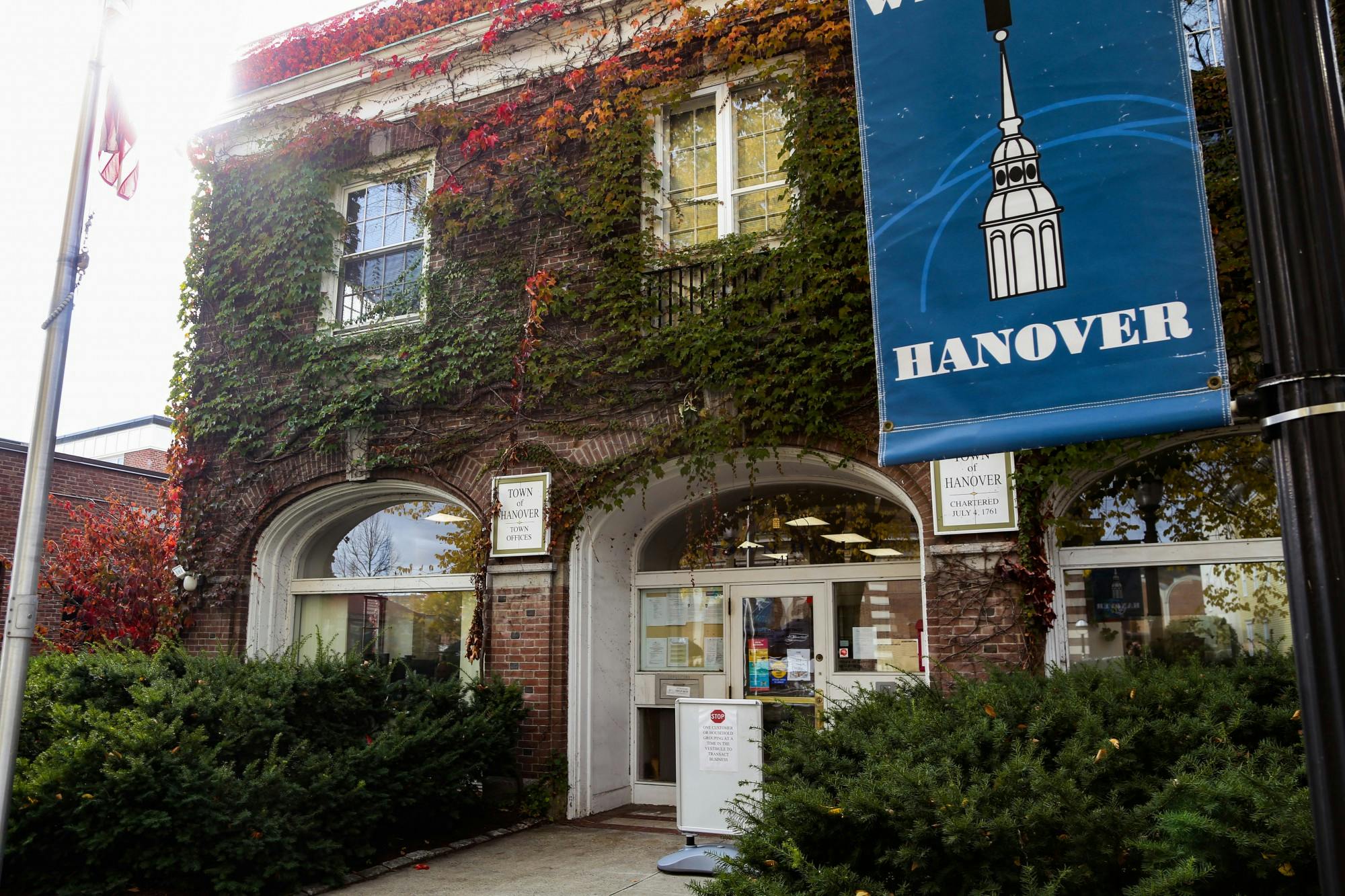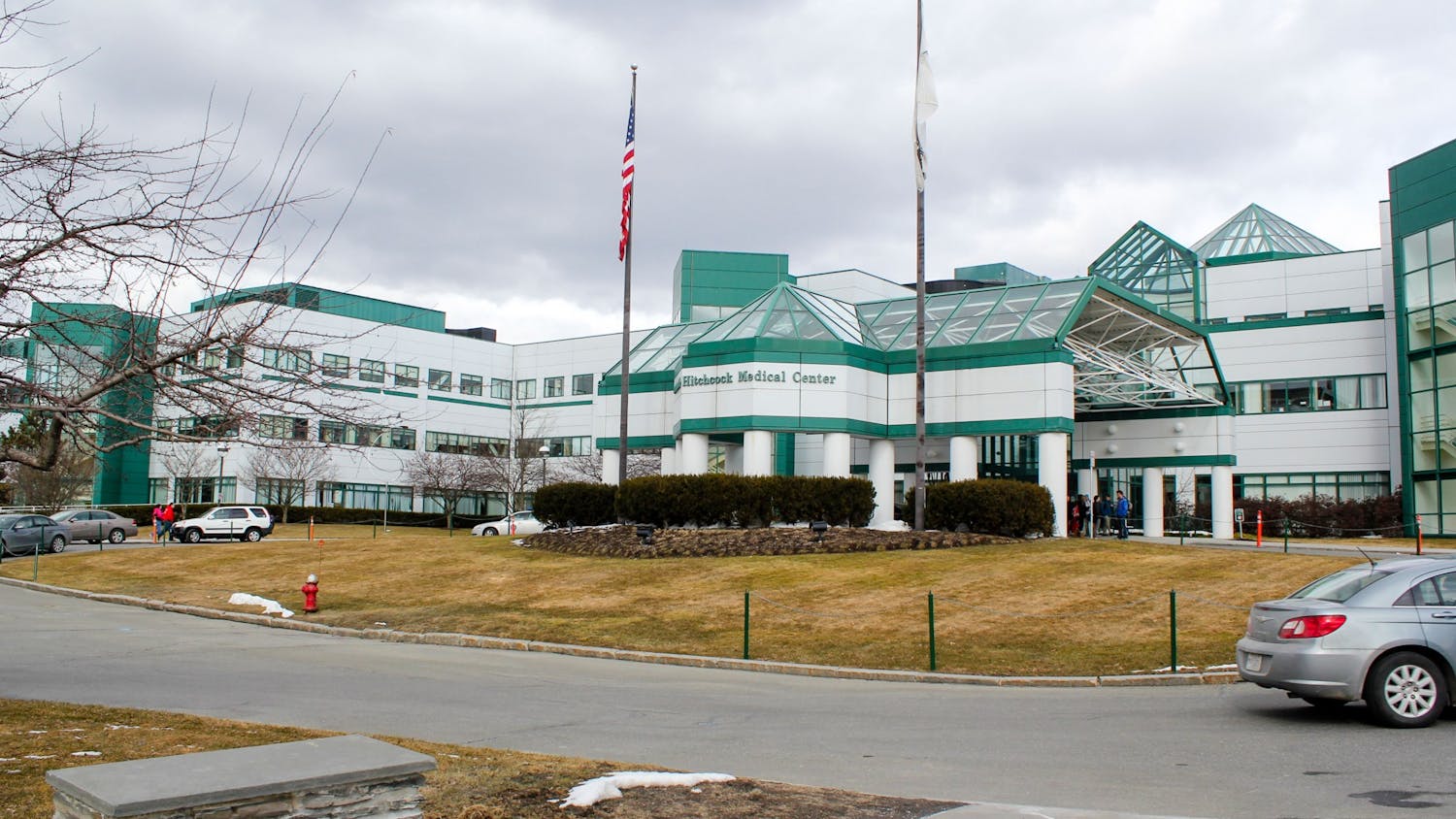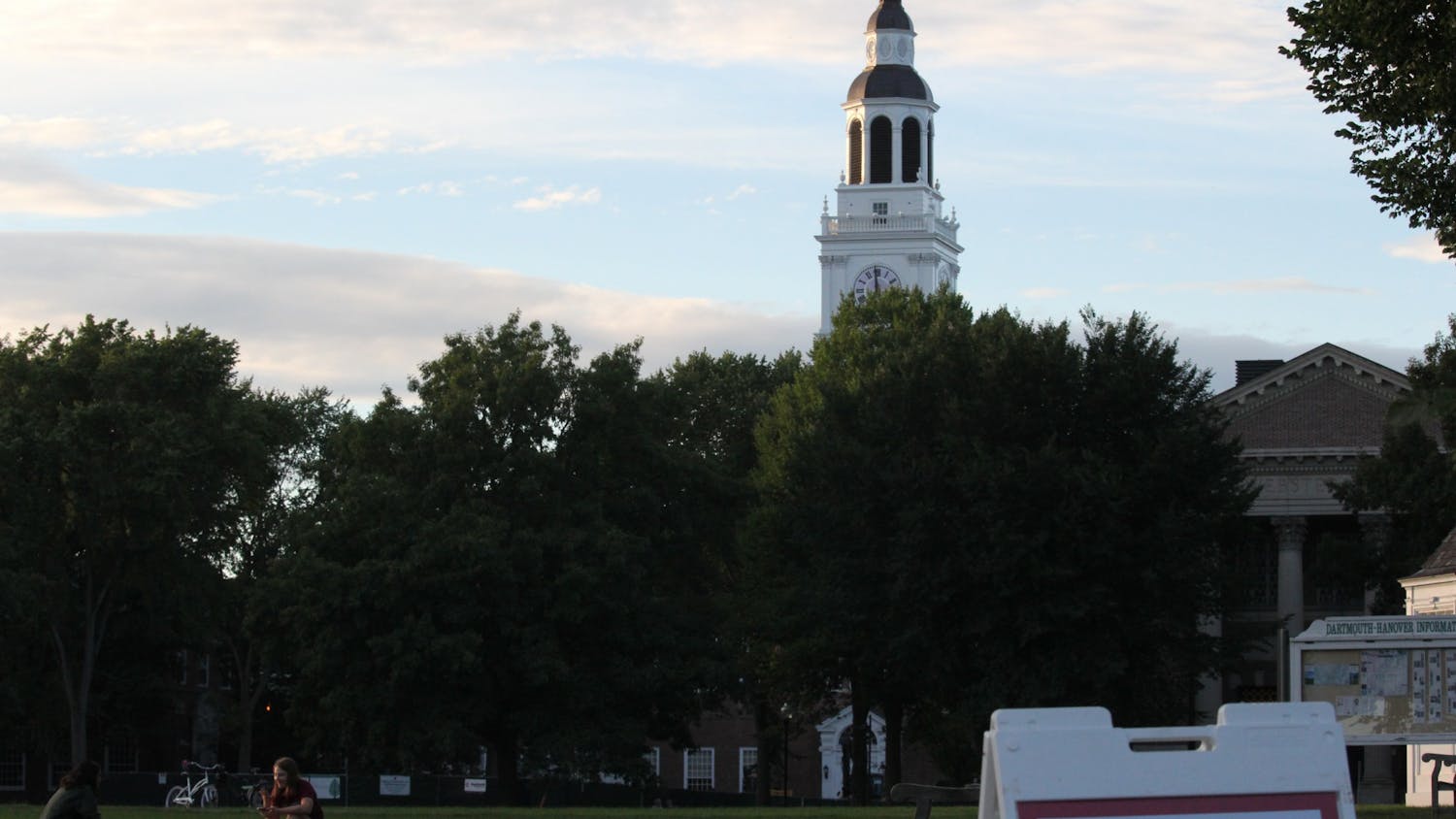This article is featured in the Fall 2020 special issue.
The atmosphere was uneasy ahead of the College’s fall reopening. Amid a nationwide spike in COVID-19 cases, a number of peer institutions had abruptly reversed their reopening plans, sparking apprehension from professors and Hanover town officials alike as over 2,000 students prepared to descend upon campus.
Less than two weeks before students were slated to arrive in Hanover, tensions mounted as over 150 professors called for the College to keep its operations entirely remote, prompting Student Assembly to fire back with a counter-statement that garnered over 1,000 student and alumni signatures. Ultimately, the College opted to proceed with its plan.
Now, nearly eight weeks into fall term, College and town officials have largely hailed Dartmouth’s reopening as a success. Since July 1, the College has reported only 10 positive tests — or 0.03% of the 35,562 tests it has administered. Students, too, have voiced appreciation for the chance to return to campus — yet some have shared frustration with the College’s and town’s strict enforcement of COVID-19 policies.
Hanover braces for impact
Hanover health officer Michael Hinsley recounted a “tremendous amount of fear” among Hanover residents as the College went ahead with its reopening plan.
“The Dartmouth experience [students] were returning to … was, of course, radically different than when they left,” Hinsley said. “And the amount of concern for the citizens — I don't think people were aware of how much fear there was, and still is, in the community.”
Hanover town manager Julia Griffin — who authored a guest column in The Dartmouth over the summer decrying the “irresponsible behavior” of students living off campus in Hanover — likewise expressed reservations over the arrival of students living locally off campus. She said she believed many students “weren’t necessarily going into quarantine or being tested upon arrival” and recalled one student telling her that they didn’t believe they needed to start quarantining until all of their housemates arrived — an interaction that spurred a moment of realization for Griffin.
“We need[ed] to figure out how we manage reducing the potential of [off-campus students’] exposure to each other and to the community,” Griffin said.
In the timeframe between the arrival of local off-campus students and Dartmouth Health Services’ ramping up its testing protocols for on-campus students, Hinsley said that he went door to door, having socially distanced conversations with students who had just arrived and communicating the town’s expectations to them. Hinsley emphasized that in nearly all interactions he has had, students have been polite and have complied with his requests.
As students began to arrive on campus, some of the town’s original apprehensions began to subside.
Hinsley and Griffin lauded the College’s execution of its plan to bring 2,200 undergraduate students back to campus, with Hinsley calling the plan “comprehensive” and “system-engineered,” and Griffin saying the students’ return to campus has “gone quite well.”
“It's amazing to watch a plan — [developed by] dedicated and brilliant people who are committed to the institution and to the situation — work,” Hinsley said. “I’m beyond pleased that it has worked as well as it has, and it has worked beyond my expectation.”
Griffin noted that the town has not dealt with many “really serious violations” of its 10-person gathering ordinance. She added that the College and town’s collaborative implementation of the “Community Expectations” agreement contributed to Hanover and Dartmouth’s low incidence of COVID-19.
At the same time, Hinsley said that the beginning of the term period was not without its difficulties. On one occasion four days into Dartmouth’s initial quarantine period, Hinsley said he responded to a large gathering of students on the Green. This particular gathering, he said, provoked “a lot of concern and fear” within the Hanover community.
College spokesperson Diana Lawrence declined to comment further on Hinsley’s claim, citing privacy concerns.
Hinsley also noted that, because Dartmouth’s plan had put students through a screening process prior to arrival, and because the gathering occurred four days into quarantine — a point at which he said the data was “in [their] favor” — the risk of this large gathering had been significantly reduced. But this event still “jeopardized” the College’s ability to have an effective quarantine, Hinsley said.
Students, local residents reflect on town’s policies
Over the past weeks, some students have also noted an emerging double standard in the town’s treatment of students living locally off campus.
Kevin Donohue ’21, who has lived off campus since the spring, said that he sees a “dichotomy” in the way the town has treated Dartmouth students relative to non-Dartmouth students. He noted that he has heard reports of Hanover High School students practicing soccer without face coverings, in addition to “frequently” seeing high school-age students walking around his neighborhood without masks.
“Obviously, Hanover High School students can’t be expected to comply with College guidelines, but the town seems to expect to enforce those same guidelines on Dartmouth students,” Donohue said.
Donohue added that he has witnessed “unequal enforcement of the rules.”
“It may have made sense of the beginning of all this, when Dartmouth students were coming from all over the country. But now that we've all been here for a month and a half, it doesn't quite make sense anymore,” Donohue said.
Meanwhile, Hinsley defended the town’s management of the situation and treatment of Dartmouth students.
“I’m not targeting Dartmouth students,” he said. “But I am targeting houses that have five or six hundred beer cans and cups all over the yard, christmas lights, loud music and a ping pong table with a dozen beer cups still on the [surface].”
According to Hinsley, many of these houses have had to be placed in quarantine because of exposure to COVID-19.
“I’m thinking I was on the target there,” Hinsley said.
Donohue said that this spring and summer, he heard about students getting “slapped on the wrist” for code violations, and called these consequences “fair.” This fall, with the town “clamping down” on restrictions, off-campus students seem to be adhering more closely to guidelines, Donohue said.
Addie Green ’22, who lives off campus in Lebanon but visits downtown Hanover on a regular basis, said that she has noticed a difference in how COVID-19 rules are enforced when comparing where she is to Hanover.
“I think Lebanon has been way more relaxed, in the sense that although they have similar rules, I don’t think they’re enforcing them as strictly as Hanover,” Green said. “My roommates and I are pretty good at following the rules as far as masks go, but I’ve noticed that in Lebanon, when I go into grocery stores, or I get takeout, everywhere I go there will be people without masks.”
Green noted that while she has heard of instances of other households hosting “larger gatherings,” she thinks most students living off-campus have modified their behavior in response to the pandemic, as well as due to being “nervous” about losing on-campus privileges.
“For the most part, I think people are sticking to tighter circles and not throwing parties,” Green said.
Lebanon residents Karen and Tom Lanzetta ’74, who own a property in Hanover that they rent to students, said they were “happy” that Hanover “seems to be managing off-campus housing pretty closely.” According to Tom Lanzetta, the town sent him and his property manager a notice that detailed the steps he should take if tenants hosted gatherings of more than 10 people. These steps included needing to provide student names and information to the town, as a part of the town’s emergency public health ordinance.
“They are concerned about housing for students in the community. And they're making sure that we're following their protocols and rules,” Tom Lanzetta said.
In addition, according to Karen Lanzetta, the notice requested that the landlord share their residents' contact information with the town in the case that a resident tested positive.
In contrast with the town’s communication with residents, however, Lanzetta remarked that he hoped Dartmouth would be more proactive in communicating updates on the College’s situation not only to students, but also to community members.
“We had to go digging to find out information,” Tom Lanzetta said. “It would be nice if there was a little bit of push to get out daily or weekly communication about what’s happening at Dartmouth.”
“An email once a week would be a nice, neighborly thing to do,” Karen Lanzetta added.
For example, Tom Lanzetta said that he at one point wasn’t sure whether Dartmouth students could travel on weekends and then return to campus. Lanzetta soon found out about Dartmouth’s rules for weekend travel, but said “it would have been nice to have known that ahead of time.”
In the interactions he has had with students when visiting downtown Hanover, Tom Lanzetta said that he has been “impressed” with student adherence to Hanover’s mask ordinance and gets the sense that students have been “responsible.”
As the winter months approach, Griffin anticipates that the town and College will have to confront a new set of challenges.
“It’s going to get trickier as things have to come indoors,” Griffin said. “Being able to hold so many of the events outdoors has been a real luxury … but once you start looking to bring more than 10 people together indoors, we're going to get far less tolerant of those kinds of gatherings.”





